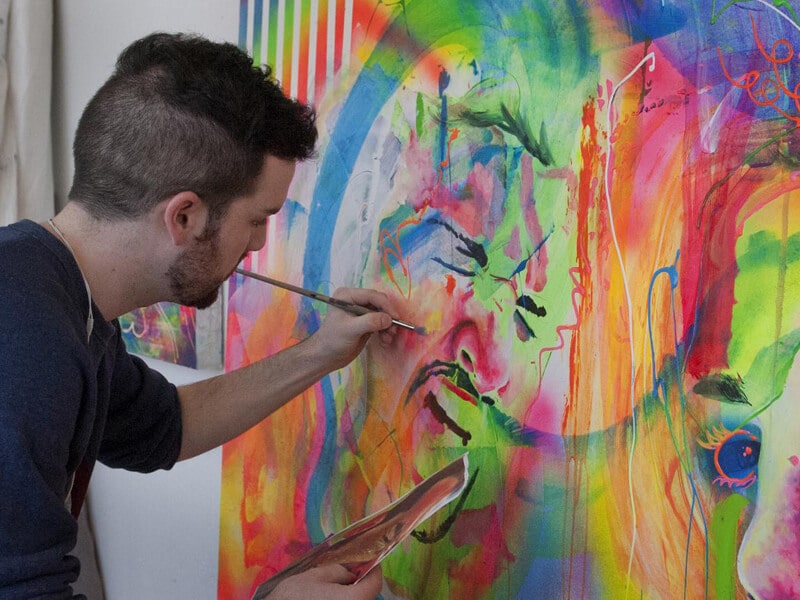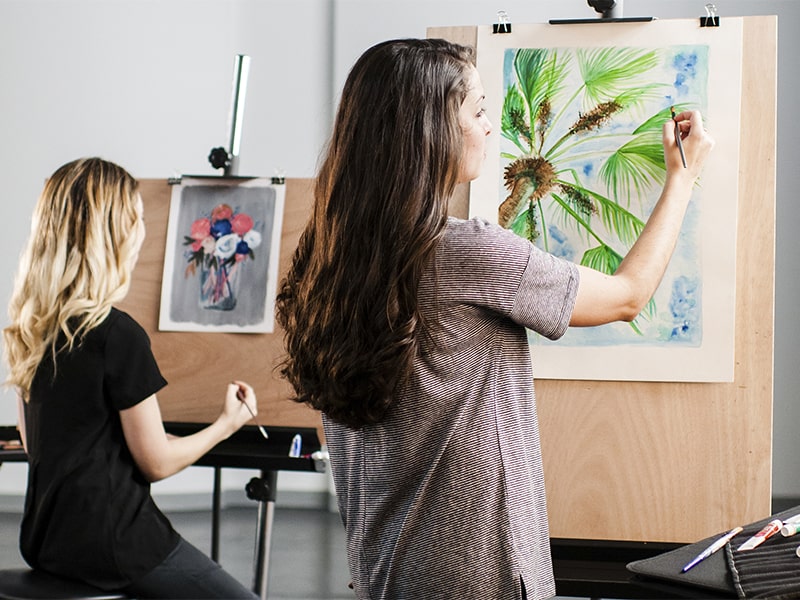Why art is fundamental to human
I believe that art is fundamental to human and social development because we are all born artists. Just look at children in preschool. Curious, restless, eager to discover, create and share. Only to then do everything to kill their initiative, turn them off and make them conform.
Art is a human capacity that has been, is and will be basic to the development of our species and our society. It is what allows us to give a transcendent meaning to the events of daily life. In it we develop our ability to feel, to shape, to communicate and to inspire others.
Today, more than ever, we need art and the artistic spirit to reclaim our essence. Because it is precisely through art that we can revive human activity to evolve from a closed mechanical thinking to a more open and inclusive vision of life.
In a way, since the industrial revolution, the value of art has been minimized. We have been conditioned to see it as something frivolous and superficial and not as a quality and skill that develops the best in us and has the capacity to drive society to be more just and proactive.
Let’s stop for a moment to remember how art has played a fundamental role in the history of our species by seeing some of the first signs of civilization that were manifested through painting.
Let’s remember the extraordinary paintings found by Jean-Marie Chauvet in the caves in Ardèche France that show how 30,000 years ago our ancestors were painting, sculpting, creating jewelry and possibly even composing music.
Or what can we say about the wonderful cave Sistine Chapel in the caves of Lascaux that was found by four teenagers. A true masterpiece dating back 17,000 years, consisting of hundreds of figurative and abstract paintings that adorn the walls and ceilings of the cave, making a tribute to life, by capturing the soul of its surroundings.
And finally, only 5,000 years ago, writing was born and with it the possibility of capturing the biographical expression of deeply curious and restless creatures who marvel at life and their newly acquired awareness of their own fragility and greatness.
Without a doubt, art in our history is neither frivolous nor superficial. No, art emerges as a human capacity that offers us an extraordinary instrument of communication that infuses powerful emotions to build and organize a society through painting, dance, music and poetry.
But equally important, art becomes a way to explore our own mind and that of others. And it teaches us specific aspects of life by giving us an extraordinary tool for establishing and exercising moral judgment.

Let’s transfer this to the present moment and to the business world. Today, when we have extracted almost every last drop of efficiency from processes, artistic thinking, that ability to find new relationships between existing things, takes on unprecedented importance.
Art has the virtue of developing our whole being. It uses the analytical and rational capacity of the left hemisphere of our mind, together with the sensitivity and emotions of the right hemisphere. This combination is essential to form balanced, generous and proactive people capable of assuming responsibility and inspiring others to collaborate.
And that is why it is essential to accelerate the teaching of art in all areas of human endeavor. From school to the office and the government. We must develop initiative and creativity in our children and recover this faculty in our young people and adults.
I would like to conclude by calling on young people who are considering pursuing technical careers. I want them to keep in mind that most technical skills are becoming systematized. That is, machines are replacing human beings in the duplication of routine processes.
I foresee that in the years to come we will see accountants, lawyers and even some doctors being displaced by machines that integrate balance sheets, draw up contracts and make diagnoses better than we do. However, I do not see that machines will be able to displace our human capacity, our art of connecting and adding value.
Today, what companies are demanding are people with the development of tacit skills such as good judgment, being able to solve problems, knowing how to listen, analyze data, communicate, and collaborate, coupled with cognitive skills such as having a positive attitude, being self-motivated, with good habits, a balanced life, and universal principles. Skills that are currently scarce goods and therefore very well valued.
